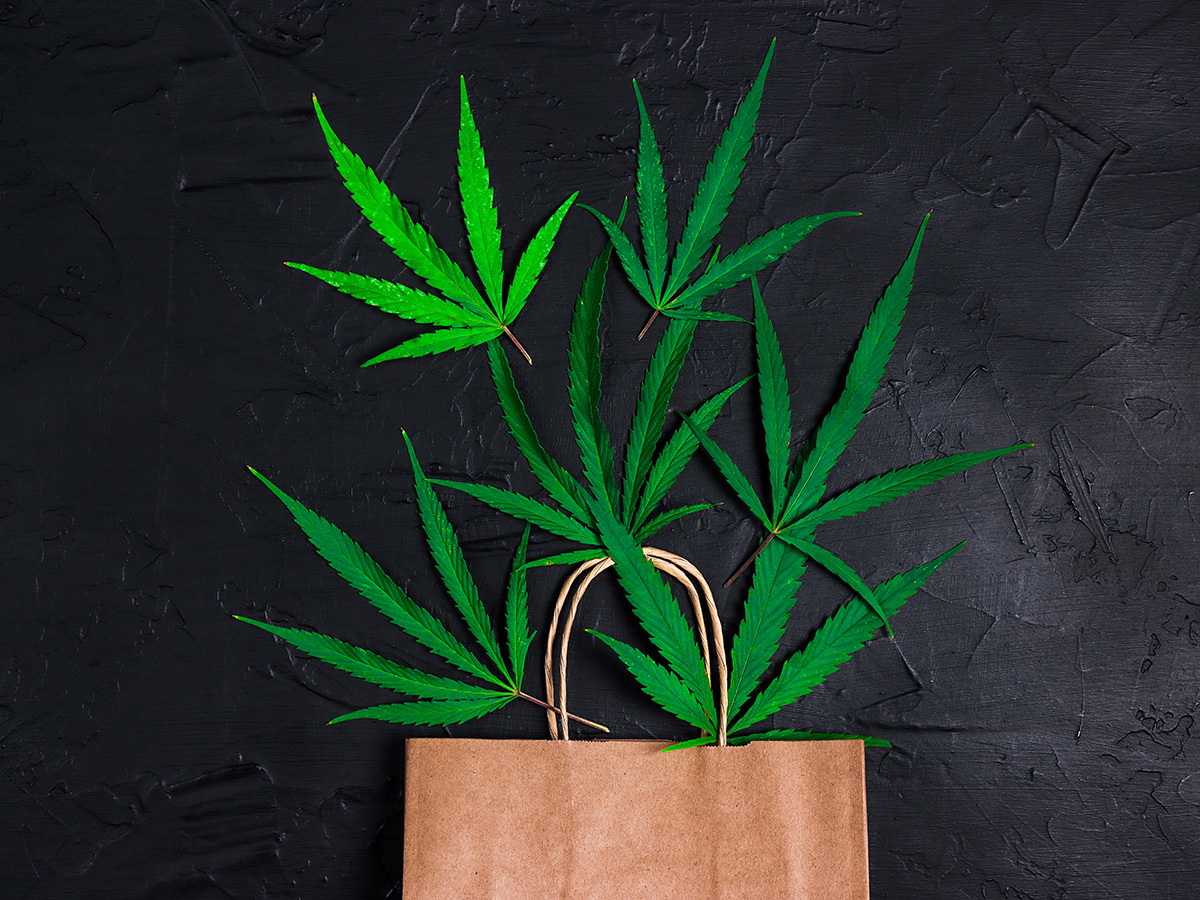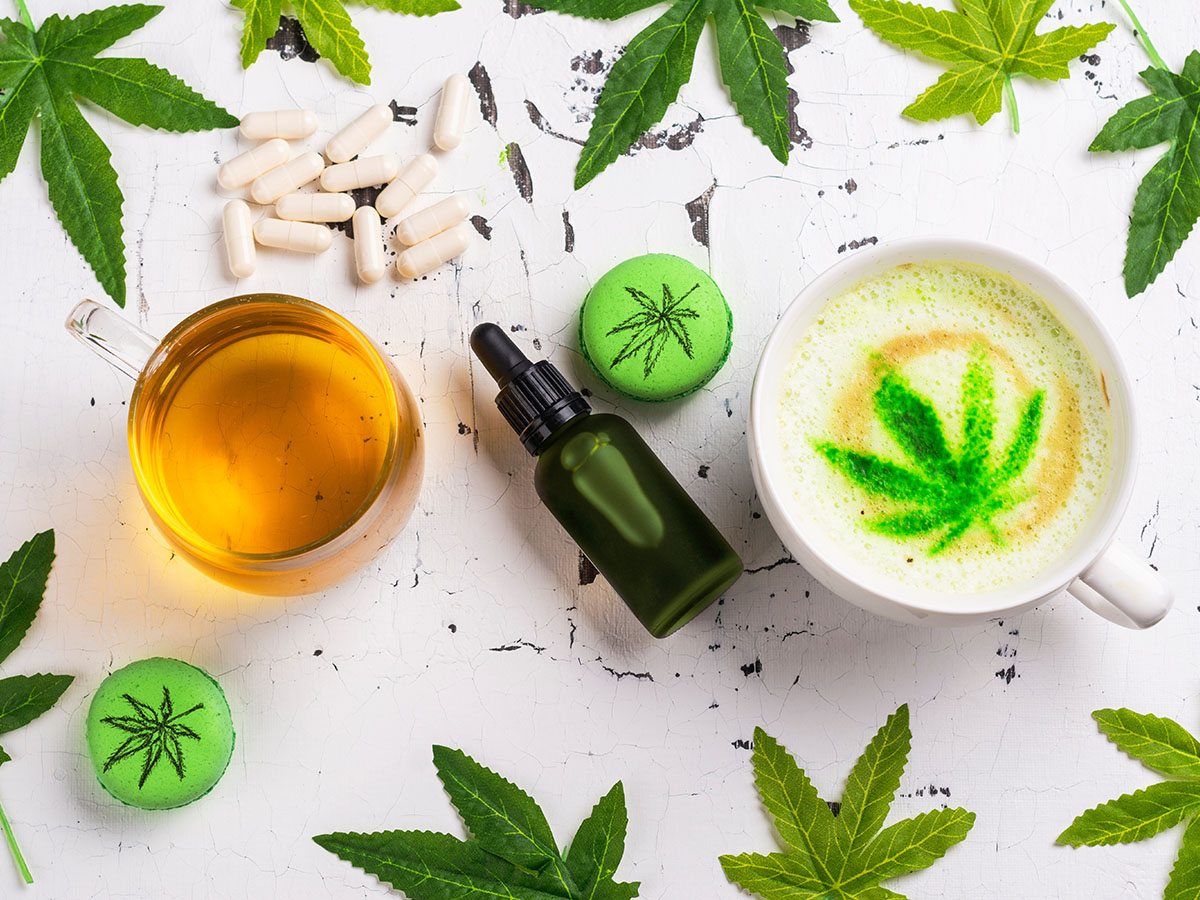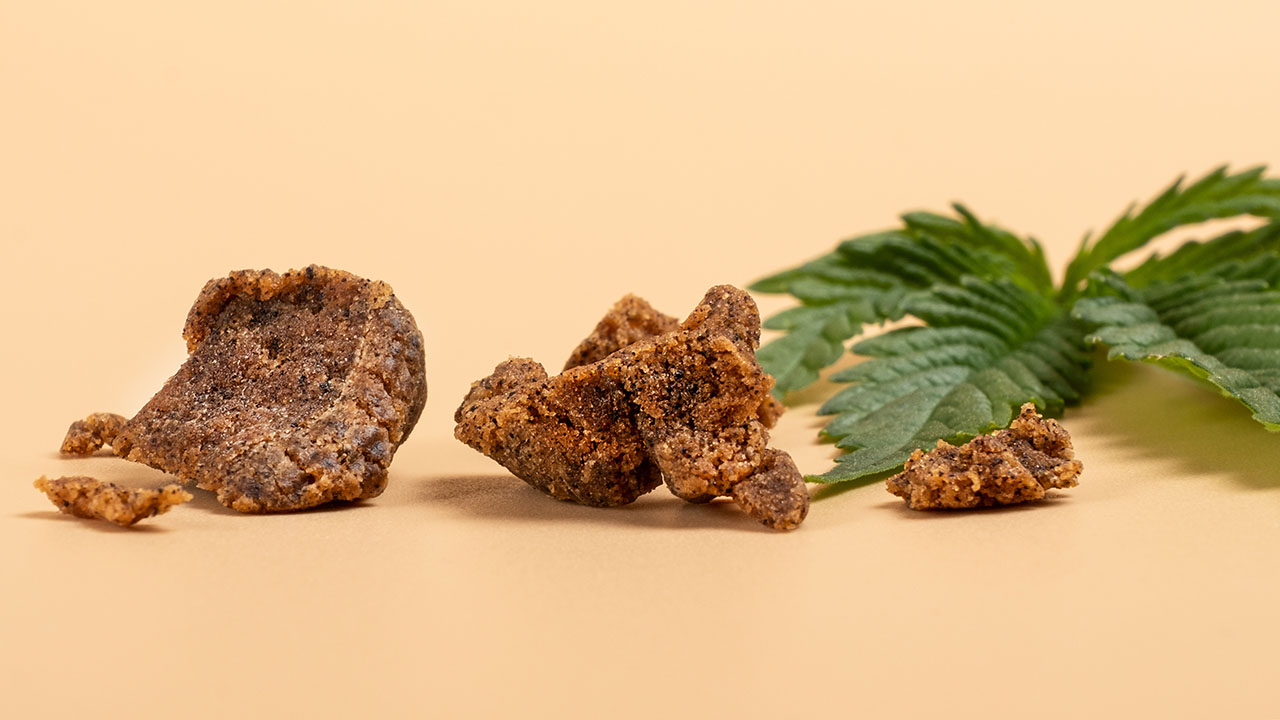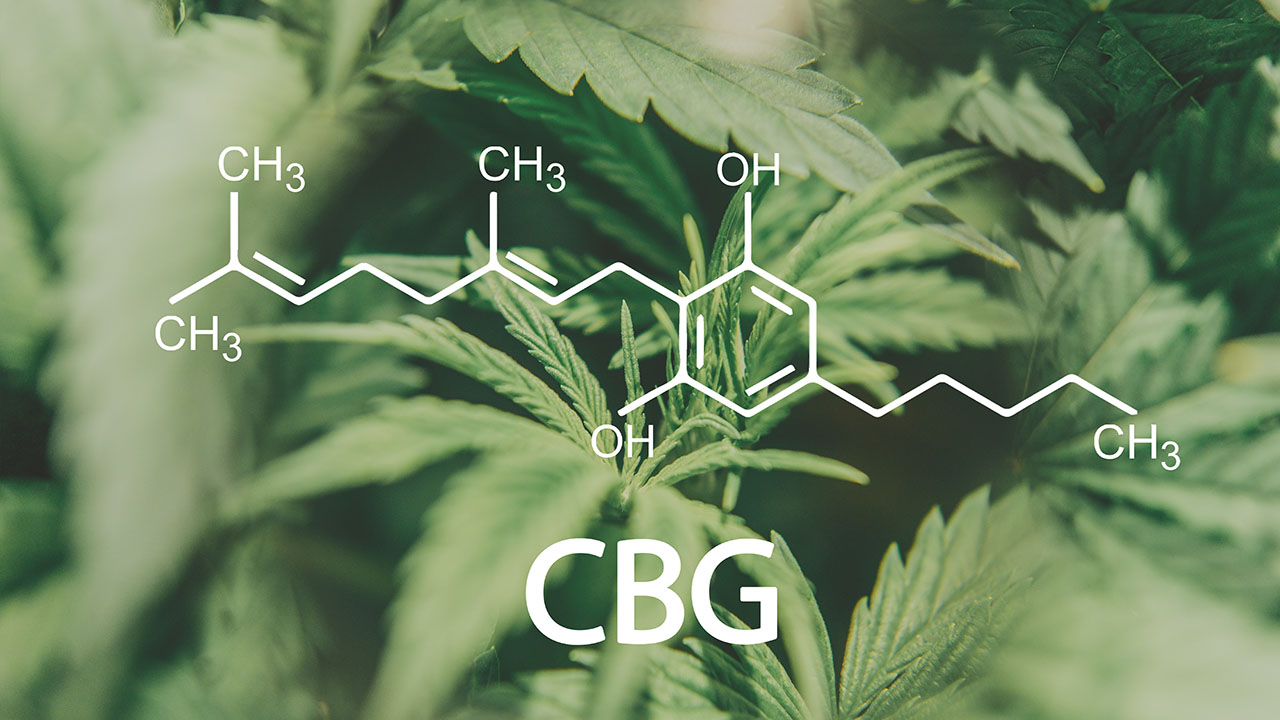
CBG vs CBD: Understanding the Differences
August 27, 2025
Whether you’re a cannabis enthusiast or a newbie, you’ve likely heard of CBD—a popular non-psychoactive cannabinoid with potential therapeutic benefits. But what about CBG? As it gains more attention, it’s important to understand the differences between CBG vs CBD when choosing your cannabis products. In this guide, we’ll explore their unique characteristics and benefits, and how to decide which is right for you.
High Points
- CBD and CBG are both naturally occurring cannabinoids that are found in the cannabis plant. However, CBD is much more plentiful, making it easier to extract for a variety of products. CBG, on the other hand, is much rarer since most of it converts into other cannabinoids as the plant matures.
- Both CBG and CBD interact with the endocannabinoid system to produce effects, but while CBG binds directly to CB1 and CB2 endocannabinoid receptors, CBD cannot.
- There are countless CBD products on the market, available in retail stores and state-licensed cannabis dispensaries. Because CBG is not as common, it may be harder to find products that contain this elusive cannabinoid.
Introduction to Cannabinoids
Cannabinoids are the compounds in the cannabis plant that interact with the endocannabinoid system to produce various effects. While THC is the most well-known for its psychoactive nature, non-psychoactive cannabinoids like CBD and CBG also play vital roles. Though they won’t intoxicate you, both may offer therapeutic benefits.1
What Is CBG, the Mother of Cannabinoids?
CBG, or cannabigerol, is often called “the mother cannabinoid” because it acts as a precursor to others like THC and CBD. Without CBG, many other cannabinoids wouldn’t exist.2
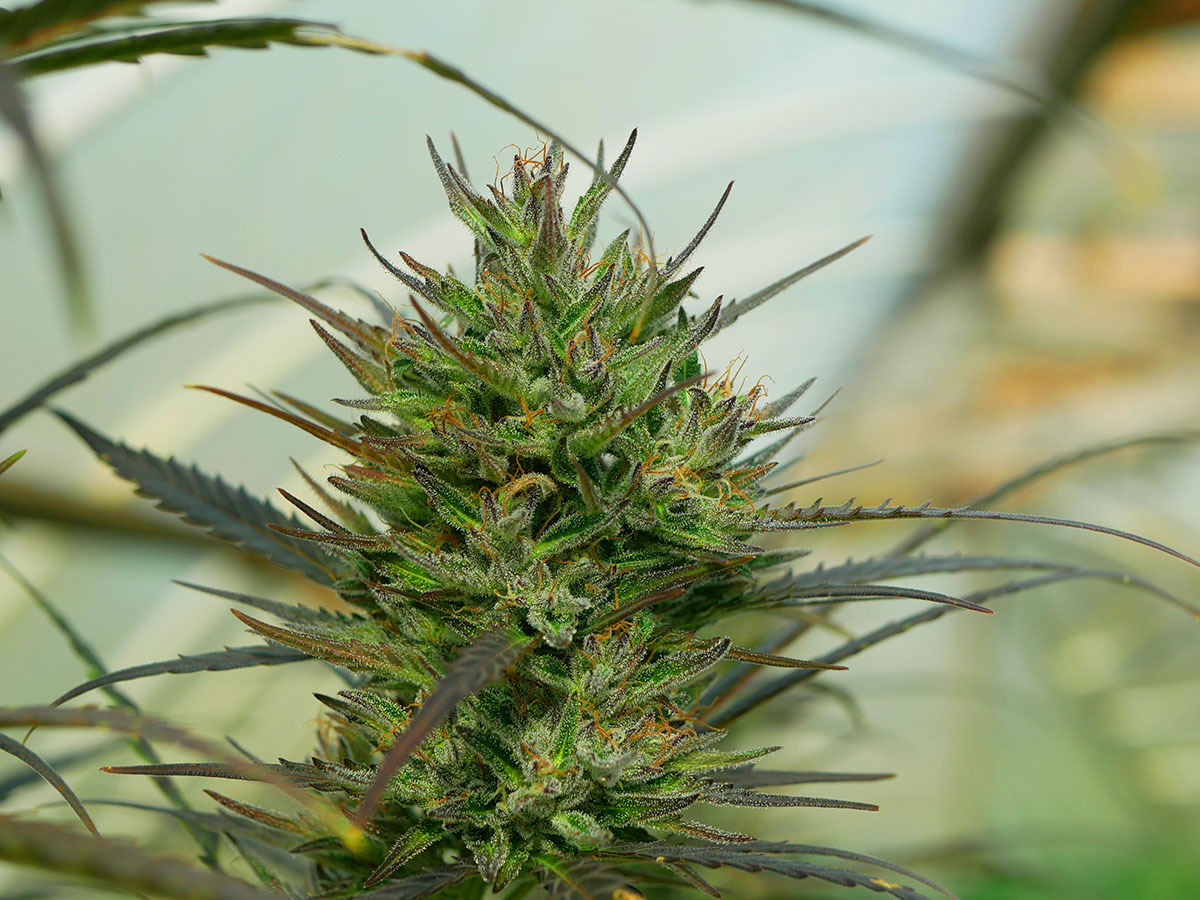
However, it’s less abundant in mature cannabis plants since most CBG is converted into other cannabinoids as the plant grows, making it harder to extract in large quantities. For example, CBG turns into CBDA (cannabidiol acid) and then into CBD, the active form.3 Chemically, CBG interacts directly with the CB1 and CB2 receptors in your endocannabinoid system. This is what gives CBG its distinct therapeutic potential.4
What Is CBD, the Popular Cannabinoid?
CBD (cannabidiol) has been studied extensively and is now a key player in wellness and medical circles. Found abundantly in both hemp and cannabis, CBD’s non-psychoactive nature makes it a popular choice for those seeking potential benefits without the high associated with THC.5 While CBD and THC share the same molecular structure, CBD has a hydroxyl group instead of a cyclic ring, preventing it from binding to CB1 and CB2 receptors in the same way, which keeps it non-intoxicating.6
Research into CBD began in the 20th century, and its popularity increased because of its potential to relieve anxiety and reduce seizures. Today, CBD is widely available in oils, capsules, edibles, and skin care products, thanks to its well-established market and legal status, making it much more accessible than CBG.7
Key Differences Between CBG and CBD
While CBD vs CBG share some similarities, they differ in their chemical structure and how they interact with the body.
Chemical Structure
One of the biggest differences between CBG and CBD is their molecular structure. CBG binds directly to CB1 and CB2 receptors, while CBD has a more indirect effect on the endocannabinoid system.8
Effects on the Endocannabinoid System
CBG interacts directly with cannabinoid receptors, potentially addressing conditions related to the nervous system, such as depression and anxiety. CBD, meanwhile, is praised for modulating the body’s response to stress and inflammation without binding directly to these receptors.10
Potential Therapeutic Benefits
CBD and CBG sound the same, but they have very different (potential) therapeutic benefits.
Potential Benefits of CBG
CBG has shown promise in addressing a range of health issues, including:
- Nervous system support: CBG may help relieve anxiety and depression.11
- Anti-inflammatory effects: Research suggests that CBG may reduce inflammation.12
- Cancer treatment potential: Early studies have explored the cannabinoid’s role in decreasing cancer cell growth.13
- Antibacterial properties: CBG may be effective against bacterial infections.14
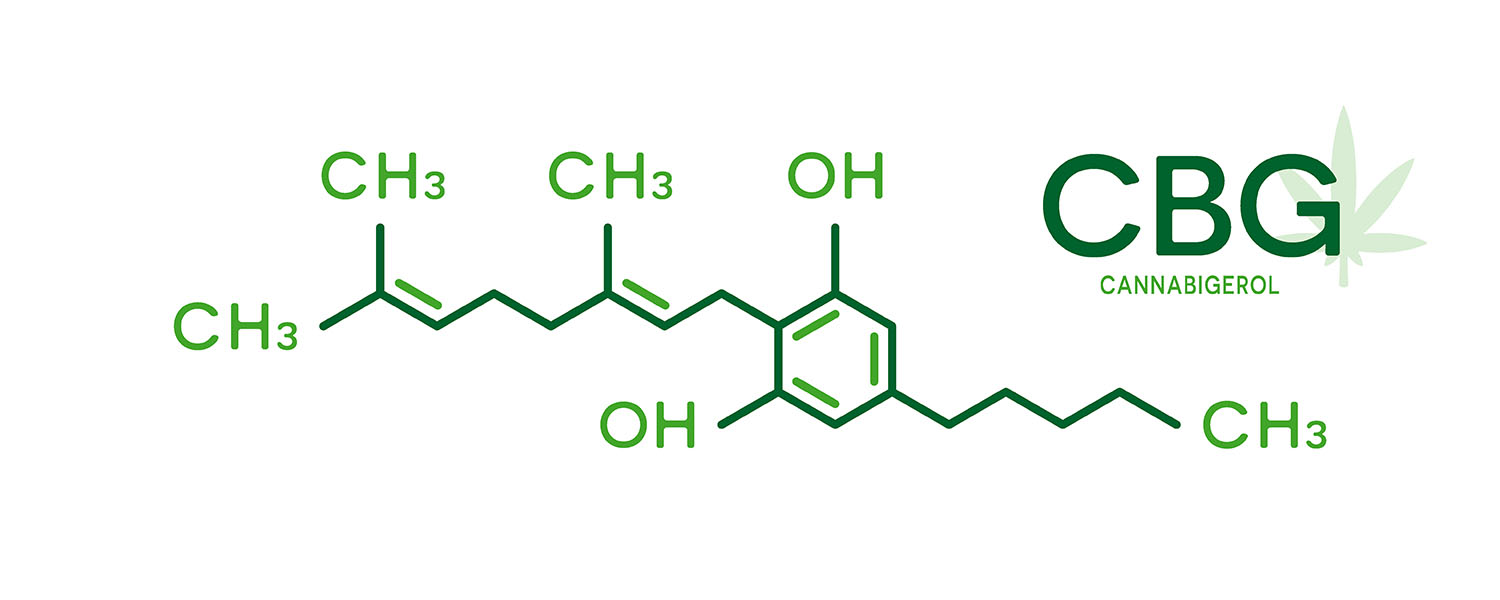
Known Benefits of CBD
CBD is widely recognized and has a well-documented track record, offering potential benefits that may include:
- Anxiety and stress relief: CBD is widely used to help manage stress and anxiety.
- Pain management: The cannabinoid is popular for addressing chronic pain.
- Epilepsy treatment: CBD is a well-known treatment for seizure disorders.
- Inflammation reduction: Like CBG, CBD is also praised for its anti-inflammatory effects.15
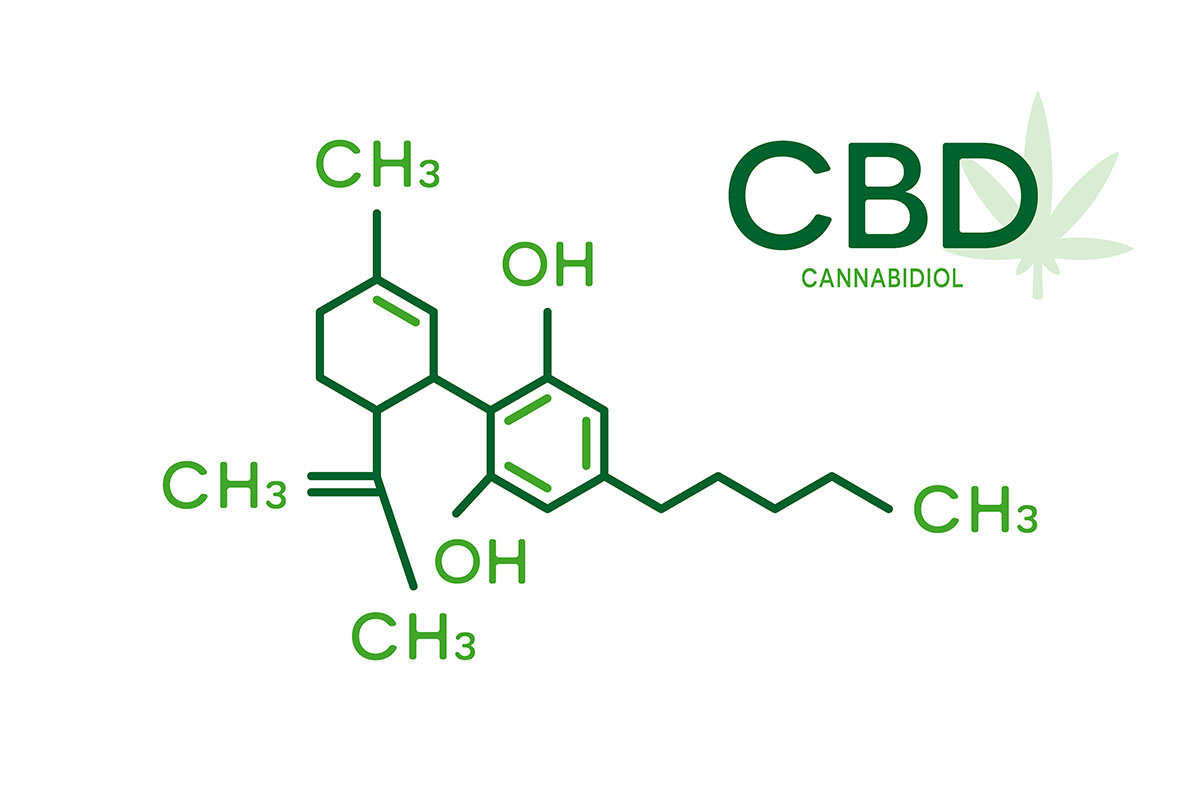
Consumption Methods
CBD and CBG can be consumed in various ways. CBG is often found in oils, isolates, or full-spectrum products that combine multiple cannabinoids for a more holistic effect.16 CBD is available in isolate, full-spectrum, and broad-spectrum oils, edibles, topicals, and more.17 Proper dosing is important for both cannabinoids to ensure you use them safely and effectively. If you are unsure about the dosing, consult with your favorite budtender.
Combining CBG and CBD
There’s a growing interest in the potential synergistic effects of CBG and CBD when they are used together. Full-spectrum and broad-spectrum products, which may contain both cannabinoids and others, can benefit you because they activate the entourage effect—the idea that cannabinoids work better together than on their own.18 When considering CBD vs CBG products, look for full-spectrum options that include a range of cannabinoids for a more comprehensive experience.
FAQs About CBG
Curious about CBG and CBD and how one cannabinoid stacks up against the other? Here are answers to some frequently asked questions to help you better understand CBG and CBD. Or ask your budtender the next time you visit a LivWell dispensary.
What’s the main difference between CBG and CBD?
The main difference between CBG and CBD is that CBG interacts more directly with the cannabinoid receptors in your body, while CBD has a more indirect effect.
Can I take CBG and CBD together?
You can consume CBG and CBD separately or together. When combined, they trigger the entourage effect, meaning you experience enhanced effects compared to using an individual cannabinoid.
Which is better for sleep: CBG or CBD?
CBD and CBG may help you sleep better, but these two cannabinoids work in different ways. CBG is potentially more suited for addressing some underlying issues, like anxiety or pain, that are keeping you awake, while CBD helps promote relaxation and sleep.
How do I choose between CBG and CBD products for my needs?
It depends on your needs. It’s best to ask a budtender at your favorite dispensary for personalized recommendations and then decide whether CBD, CBG, or full-spectrum products are the best for you.
Are CBG and CBD psychoactive like THC?
CBG and CBD are non-psychoactive cannabinoids, so they don’t cause intoxicating effects.
Choosing Between CBG and CBD
While CBD has long been a popular choice, CBG is quickly becoming a promising option for those seeking additional benefits. Both cannabinoids have their strengths, from CBD’s well-documented effects on anxiety and pain relief to CBG’s potential in neuroprotection and anti-inflammatory treatments. As more research continues to shed light on these cannabinoids, experimenting with different cannabis products could help you experience the best of both worlds. Be sure to ask your budtender for advice when you shop cannabis products and choose between CBG and CBD.
Sources:
1. “Is CBG the Next CBD? Here’s What You Should Know,” Real Simple, December 30, 2022, https://www.realsimple.com/food-recipes/recipe-collections-favorites/popular-ingredients/cbd-versus-cbg
2. “What Is CBG (Cannabigerol)? Benefits, Uses, Dosages,” Leafwell, https://leafwell.com/blog/what-is-cbg-cannabigerol-medicinal-benefits-use
3. “Pharmacological Aspects and Biological Effects of Cannabigerol and Its Synthetic Derivatives,” National Library of Medicine, November 8, 2022, https://www.ncbi.nlm.nih.gov/pmc/articles/PMC9666035/
4. “Cannabigerol: a biometric overview and review of research on an important phytocannabinoid,” Springer Link, January 24, 2022, https://link.springer.com/article/10.1007/s11101-021-09794-w
5. “What are the benefits of CBD - and is it safe to use?” Mayo Clinic, https://www.mayoclinic.org/healthy-lifestyle/consumer-health/expert-answers/is-cbd-safe-and-effective/faq-20446700
6. “Molecular and Cellular Mechanisms of Action of Cannabidiol,” National Library of Medicine, August 9, 2023, https://www.ncbi.nlm.nih.gov/pmc/articles/PMC10458707/
7. “ Cannabidiol (CBD): What we know and what we don’t,” Harvard Health Publishing, April 4, 2024, https://www.health.harvard.edu/blog/cannabidiol-cbd-what-we-know-and-what-we-dont-2018082414476
8. “Cannabinoids in the landscape of cancer,” ResearchGate, September 2021, https://www.researchgate.net/publication/353259624_Cannabinoids_in_the_landscape_of_cancer
9. “Cannabigerol Action at Cannabinoid CB1 and CB2 Receptors and at CB1–CB2 Heteroreceptor Complexes,” National Library of Medicine, June 21, 2018, https://www.ncbi.nlm.nih.gov/pmc/articles/PMC6021502/
10. “What is the endocannabinoid system and how does cannabis affect it?” GoodRx, October 24, 2023, https://www.goodrx.com/classes/cannabinoids/what-is-the-endocannabinoid-system
11. “Is CBG the Next CBD?” Psychology Today, August 1, 2024, https://www.psychologytoday.com/us/blog/balanced/202408/is-cbg-the-next-cbd
12. “Anti-Inflammatory Effects of Cannabigerol in Rheumatoid Arthritis Synovial Fibroblasts and Peripheral Blood Mononuclear Cell Cultures Are Partly Mediated by TRPA1,” MDPI, January 3, 2023, https://www.mdpi.com/1422-0067/24/1/855
13. “Cannabigerol Is a Potential Therapeutic Agent in a Novel Combined Therapy for Glioblastoma,” National Library of Medicine, February 5, 2021, https://www.ncbi.nlm.nih.gov/pmc/articles/PMC7914500/#:~:text=CBG%20was%20reported%20to%20reduce,reviewed%20by%20Ligresti%20et%20al
14. “Antibacterial cannabinoids from Cannabis sativa: a structure-activity study,” National Library of Medicine, August 6, 2008, https://pubmed.ncbi.nlm.nih.gov/18681481/
15. “Therapeutic benefits of CBD,” MedicalNewsToday, https://www.medicalnewstoday.com/articles/cgb-vs-cbd#cbd-benefits
16. “What is CBG (cannabigerol) & what does this cannabinoid do?” Leafly, September 14, 2022, https://www.leafly.com/news/cannabis-101/what-is-cbg-cannabinoid
17. “Meet CBG, the New Cannabinoid on the Block,” Healthline, February 28, 2020, https://www.healthline.com/health/cbg-oil#choosing-a-product
18. “Could the Combination of Two Non-Psychotropic Cannabinoids Counteract Neuroinflammation? Effectiveness of Cannabidiol Associated with Cannabigerol,” National Library of Medicine, November 18, 2019, https://www.ncbi.nlm.nih.gov/pmc/articles/PMC6915685/
Please consume responsibly. This product may cause impairment and may be habit forming. There may be health risks associated with consumption of this product. State laws impact what dispensaries can and can’t sell to recreational customers and medical marijuana patients. Not every type of product, consumption method, dosage form, or potency mentioned on this blog will be permitted in all locations. This content is not intended as medical advice. The information provided is meant to encourage cannabis education, not replace direct patient-healthcare professional relationships. Always consult your primary care physician or other healthcare provider prior to using cannabis products for treatment of a medical condition. Any statements contained herein have not been evaluated by the Food and Drug Administration. Products referenced are not intended to diagnose, treat, cure, or prevent any disease. Products are only available where consumption of cannabis is legal.
